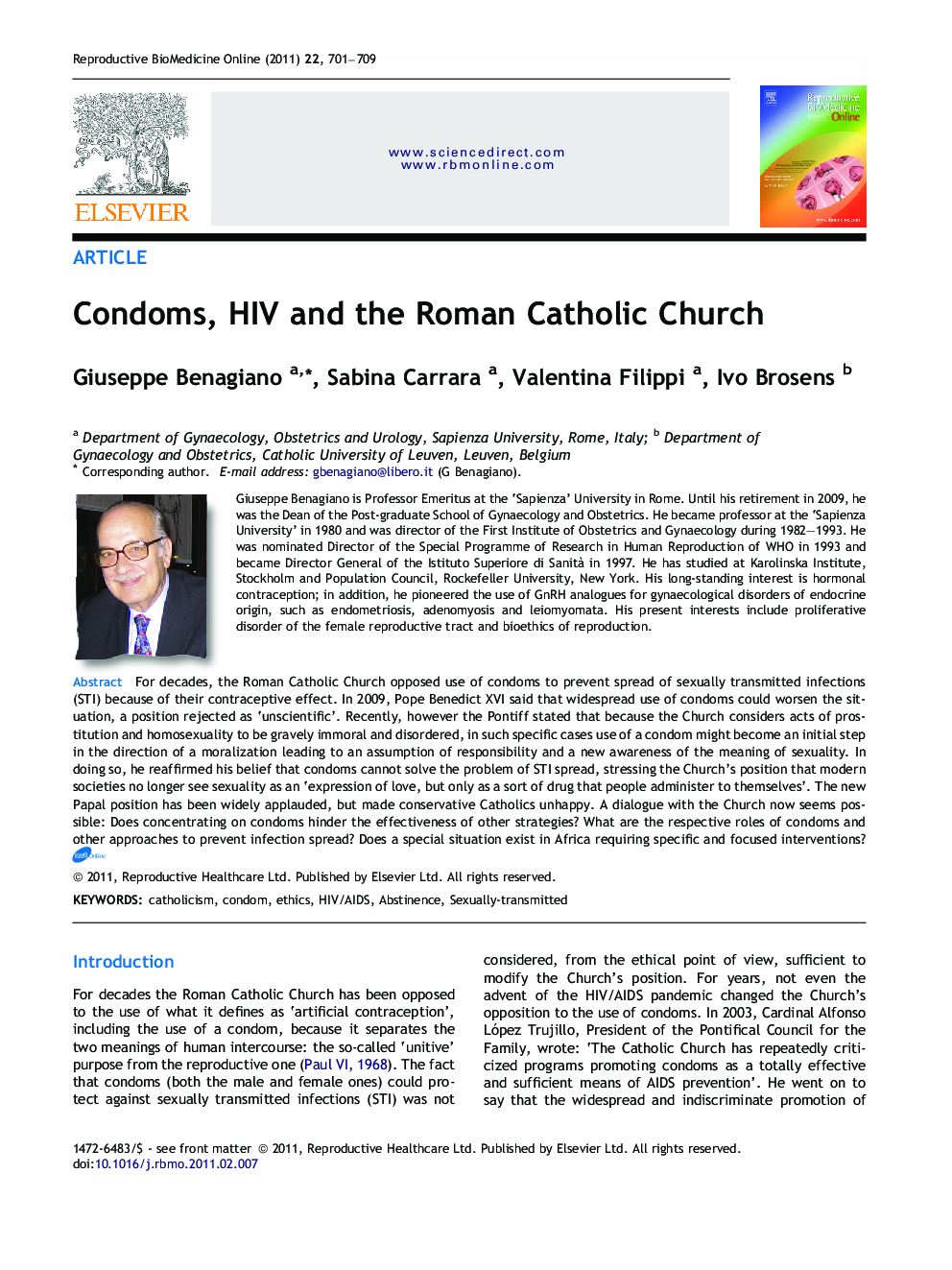| Article ID | Journal | Published Year | Pages | File Type |
|---|---|---|---|---|
| 3970560 | Reproductive BioMedicine Online | 2011 | 9 Pages |
For decades, the Roman Catholic Church opposed use of condoms to prevent spread of sexually transmitted infections (STI) because of their contraceptive effect. In 2009, Pope Benedict XVI said that widespread use of condoms could worsen the situation, a position rejected as ‘unscientific’. Recently, however the Pontiff stated that because the Church considers acts of prostitution and homosexuality to be gravely immoral and disordered, in such specific cases use of a condom might become an initial step in the direction of a moralization leading to an assumption of responsibility and a new awareness of the meaning of sexuality. In doing so, he reaffirmed his belief that condoms cannot solve the problem of STI spread, stressing the Church’s position that modern societies no longer see sexuality as an ‘expression of love, but only as a sort of drug that people administer to themselves’. The new Papal position has been widely applauded, but made conservative Catholics unhappy. A dialogue with the Church now seems possible: Does concentrating on condoms hinder the effectiveness of other strategies? What are the respective roles of condoms and other approaches to prevent infection spread? Does a special situation exist in Africa requiring specific and focused interventions?
